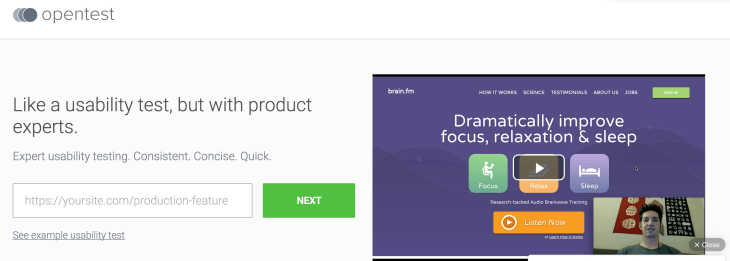As we reported last November, Shahed Khan, age 20, has managed to draw a lot of attention over the last four years as he set out to establish himself as both an entrepreneur and investor.
Now comes one of his first real tests. Last month, Khan left his temporary position as an entrepreneur-in-residence with the young accelerator program NFX Guild to work full-time on a five-month-old, San Mateo, Ca.-based company called Opentest that Khan has co-founded with friends Vinay Hiremath (a former engineer at Backplane and Upthere) and Joe Thomas (a former director of product at MyLife).
The company joins a growing number of startups that wants to help developers better understand what about their app is, and isn’t, working, before releasing it too widely. Opentest’s idea more specifically is to send a customer’s app to an “expert” in its network, who then spends 10 to 15 on-screen minutes dissecting it, answering targeted questions, coming up with action items, and suggesting additional resources. For a $99 fee – 40 percent of which OpenText keeps – that video is then delivered to Opentest’s customer.
We emailed with Khan over the weekend to learn more.
TC: Have you raised funding yet for Opentest?
SK: We’re in the process of closing our pre-seed round with a small group of investors that are based in the Bay Area. It’s sub $1 million.
TC: Are you sharing how many people are now testing products on your behalf?
SK: Not currently, but for those interested in learning more on becoming an Opentest expert, they can shoot us an email at team@opentest.co.
TC: In some marketing materials, you mention working with “experts” from Udacity and Facebook, among other places. Do most people in your current network still have other full-time jobs?
SK: Yes, the majority of our experts are employed full-time elsewhere, though we also have a number of folks making the transition from their current full-time role to a startup of their own.
TC: Who is using Opentest currently?
SK: We’ve enjoyed testing for companies such as Vungle, Clearbit, Brain.fm, Scribd and more, and we’re actively signing up new clients.
TC: I like the idea of Opentest, but it’s easy to imagine complications with someone at Facebook commenting on someone else’s product. For one thing, Facebook might not want its employees helping to elevate a competing product. There could also be confidentiality concerns. What if Facebook develops something similar after one of its engineers reviews a product?
SK: Prior to joining our platform, both the company and the expert are required to sign a non-disclosure stating any of the information discussed in the test is strictly between the two parties. This prevents Opentest from being liable for any information that can be misused in the future.
TC: Engineers often focus on specific areas. How do you build a big enough stable of engineers who understand the different products they’ll be reviewing?
SK: Given that our network of experts is highly curated right now, we’re making sure we’re constantly adding individuals who have great knowledge in multiple areas. We’ve noticed that, although a product-minded engineer may specialize in building apps for a specific platform, much of their product backbone easily carries over to other platforms. In fact, many of our top-tier engineers who develop for iOS or Android have experience building web applications and vice versa.
TC: Could IP be an issue? If someone is commenting on a product and/or making suggestions, what happens if that person comes back and says, “Hey, I should be part owner of that IP”?
SK: The experts own no IP over the product even after the test has been completed. Whether the client decides to implement the changes mentioned in the usability test is up to them. The expert is compensated for their time and knowledge.
TC: How do you create a predictable business model? Service business like this are difficult to scale.
SK: Opentest Expert is an experiment we’re running alongside our core product, which will be released later this year. After performing a large amount of user tests with our experts, we realized there’s tremendous value to deliver – most notably to earlier-stage startups.
It’s true that it is difficult to scale service-based marketplaces, but each marketplace is different and harbors its own unique problems. For us, the problem is twofold. We must retain these product experts and ensure that there’s enough demand for these types of tests. [But there] are a number of ideas in the pipeline where we hope to offer a unique online presence for people who are very passionate about product, while having a direct impact on companies looking for their feedback.
